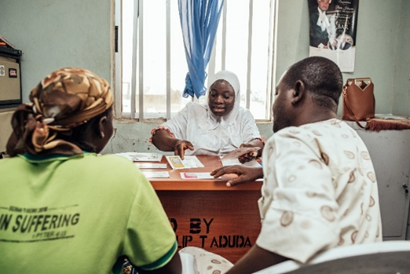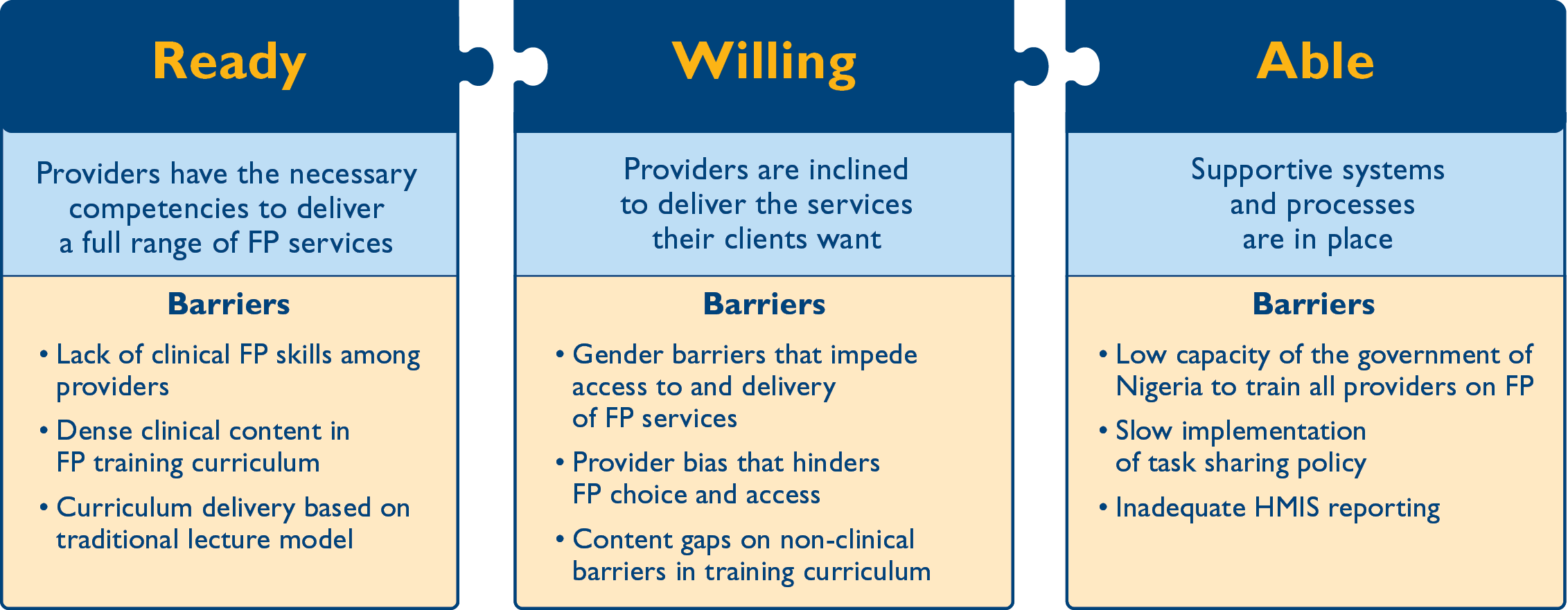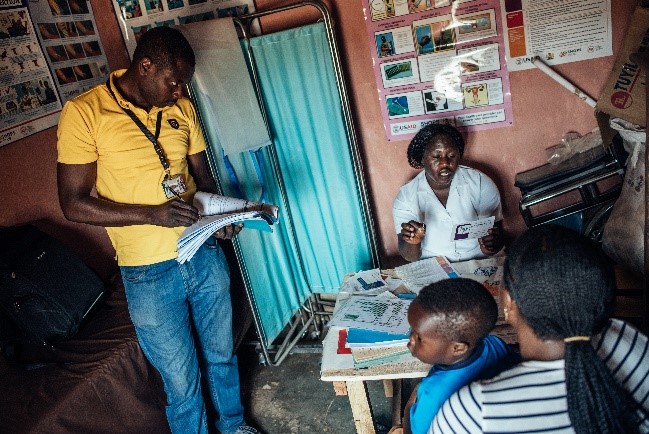Building provider capacity to ensure women’s access to quality family planning services
 Running from 2017 to 2020, the SHOPS Plus family planning program in Nigeria reached over 122,000 new family planning users, provided services to more than 269,000 individuals, and counselled almost 341,000 clients. These services were provided by the 931 public and private providers the program trained across the Federal Capital Territory, and the Plateau, Oyo, and Akwa Ibom states.
Running from 2017 to 2020, the SHOPS Plus family planning program in Nigeria reached over 122,000 new family planning users, provided services to more than 269,000 individuals, and counselled almost 341,000 clients. These services were provided by the 931 public and private providers the program trained across the Federal Capital Territory, and the Plateau, Oyo, and Akwa Ibom states.
One of the key achievements of the program was developing Nigeria’s first Training of Trainers Manual. Another was designing a training approach that went beyond traditional lecturing coupled with coaching and supportive supervision. This new approach to learning created a collaborative and engaging support system that addressed barriers that limited providers’ readiness, willingness, and ability to provide quality family planning services, including long-acting reversible contraceptives.
Provider barriers addressed by SHOPS Plus training approach

The approach built meaningful learning partnerships between trainers and providers, who worked together to improve the providers’ family planning skills and knowledge. These partnerships ensured that providers progressed from being proficient at inserting IUDs and implants to being fully competent and certified, according to the Nigerian government’s standards.
Ensuring Continuous Improvement
Throughout the program, SHOPS Plus brought together providers, trainers, government counterparts, and other implementing partners to pause and reflect. These events allowed for collaborative learning around successes and challenges, and ensured that lessons led to improved decision-making processes and adaptations.
The program was quick to adapt to providers’ needs. For example, early cohorts’ pre-training test results showed that community health extension workers had particularly low levels of baseline knowledge on family planning topics, and also worked in very challenging environments. SHOPS Plus made several key adaptations:
- Developing audio job aids focusing on “must know” information that was easily accessible to providers for free on their mobile phones
- Incorporating advocacy visits to community leaders during post-training follow-up visits and supportive supervision visits, to mobilize support for improving facility conditions
- Developing a "lite and local" supportive supervision approach and training peer coaches to make regular provider contact more economically feasible
The program has developed briefs detailing SHOPS Plus’ approach and adaptation to gender issues, provider behavior change, and quality improvement.
Transition and Sustainability – Ensuring Locally Led Implementation of the SHOPS Plus Approach
 To ensure sustainability after the program ends, SHOPS Plus worked closely with stakeholders from the state primary health care boards, provider associations, and pre- and in-service training institutions to design a shorter, cheaper to deliver, modular training program. The modular training program allows institutions to conduct family planning trainings for only a few hours or a few days. They can adjust training depending on which modules they want to use, the existing knowledge and skillset of the trainees, and the institution’s available budget and resources.
To ensure sustainability after the program ends, SHOPS Plus worked closely with stakeholders from the state primary health care boards, provider associations, and pre- and in-service training institutions to design a shorter, cheaper to deliver, modular training program. The modular training program allows institutions to conduct family planning trainings for only a few hours or a few days. They can adjust training depending on which modules they want to use, the existing knowledge and skillset of the trainees, and the institution’s available budget and resources.
In collaboration with state governments, SHOPS Plus has ensured that more women are able to access quality family planning services using a capacity building approach that is affordable and feasible for local institutions.